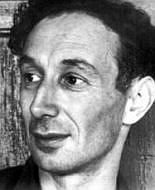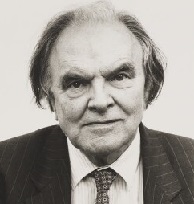Related Research Articles

Sir Alfred Jules "Freddie" Ayer was an English philosopher known for his promotion of logical positivism, particularly in his books Language, Truth, and Logic (1936) and The Problem of Knowledge (1956).

Hilary Whitehall Putnam was an American philosopher, mathematician, computer scientist, and figure in analytic philosophy in the second half of the 20th century. He contributed to the studies of philosophy of mind, philosophy of language, philosophy of mathematics, and philosophy of science. Outside philosophy, Putnam contributed to mathematics and computer science. Together with Martin Davis he developed the Davis–Putnam algorithm for the Boolean satisfiability problem and he helped demonstrate the unsolvability of Hilbert's tenth problem.
Analytic philosophy is an analysis focused, broad, contemporary movement or tradition within Western philosophy, especially anglophone philosophy. Analytic philosophy is characterized by a clarity of prose; rigor in arguments; and making use of formal logic and mathematics, and, to a lesser degree, the natural sciences. It is further characterized by an interest in language and meaning known as the linguistic turn. It has developed several new branches of philosophy and logic, notably philosophy of language, philosophy of mathematics, philosophy of science, modern predicate logic and mathematical logic.

Peter Thomas Geach was a British philosopher who was Professor of Logic at the University of Leeds. His areas of interest were philosophical logic, ethics, history of philosophy, philosophy of religion and the theory of identity.

Gertrude Elizabeth Margaret Anscombe, usually cited as G. E. M. Anscombe or Elizabeth Anscombe, was a British analytic philosopher. She wrote on the philosophy of mind, philosophy of action, philosophical logic, philosophy of language, and ethics. She was a prominent figure of analytical Thomism, a Fellow of Somerville College, Oxford, and a professor of philosophy at the University of Cambridge.

Robert Boyce Brandom is an American philosopher who teaches at the University of Pittsburgh. He works primarily in philosophy of language, philosophy of mind and philosophical logic, and his academic output manifests both systematic and historical interests in these topics. His work has presented "arguably the first fully systematic and technically rigorous attempt to explain the meaning of linguistic items in terms of their socially norm-governed use, thereby also giving a non-representationalist account of the intentionality of thought and the rationality of action as well."
Jennifer Hornsby, FBA is a British philosopher with interests in the philosophies of mind, action, language, as well as feminist philosophy. She is currently a professor at the School of Philosophy, Birkbeck, University of London. She is well known for her opposition to orthodoxy in current analytic philosophy of mind, and for her use of J. L. Austin's Speech Act Theory to look at the effects of pornography.

Anthony Clifford Grayling is a British philosopher and author. He was born in Northern Rhodesia and spent most of his childhood there and in Nyasaland. In 2011 he founded and became the first Master of New College of the Humanities, an independent undergraduate college in London. Until June 2011, he was Professor of Philosophy at Birkbeck, University of London, where he taught from 1991. He is also a supernumerary fellow of St Anne's College, Oxford, where he formerly taught.

Bimal Krishna Matilal was an eminent philosopher whose writings presented the Indian philosophical tradition as a comprehensive system of logic incorporating most issues addressed by themes in Western philosophy. Born in Calcutta, he lived and worked in Calcutta, Harvard, Toronto and Oxford. From 1977 to 1991, he served as the Spalding Professor of Eastern Religion and Ethics at the University of Oxford.
Philosophy is the study of general and fundamental problems concerning matters such as existence, knowledge, values, reason, mind, and language. It is distinguished from other ways of addressing fundamental questions by being critical and generally systematic and by its reliance on rational argument. It involves logical analysis of language and clarification of the meaning of words and concepts.

Peter Michael Stephan Hacker is a British philosopher. His principal expertise is in the philosophy of mind, philosophy of language, and philosophical anthropology. He is known for his detailed exegesis and interpretation of the philosophy of Ludwig Wittgenstein, his critique of cognitive neuroscience, and for his comprehensive studies of human nature.
Christopher Janaway is a philosopher and author. He earned degrees from the University of Oxford. Before moving to Southampton in 2005, Janaway taught at the University of Sydney and Birkbeck, University of London. His recent research has been on Arthur Schopenhauer, Friedrich Nietzsche and aesthetics. His 2007 book Beyond Selflessness: Reading Nietzsche's Genealogy focuses on a critical examination of Nietzsche's On the Genealogy of Morals. Janaway currently lectures at the University of Southampton.

John Niemeyer Findlay, usually cited as J. N. Findlay, was a South African philosopher.

Michael Devitt is an Australian philosopher currently teaching at the Graduate Center of the City University of New York in New York City. His primary interests include philosophy of language, philosophy of mind, metaphysics and epistemology. His current work involves the philosophy of linguistics, foundational issues in semantics, the semantics of definite descriptions and demonstratives, semantic externalism, and scientific realism.

Philosophy is a systematic study of general and fundamental questions concerning topics like existence, reason, knowledge, value, mind, and language. It is a rational and critical inquiry that reflects on its own methods and assumptions.
Mark de Bretton Platts is a philosopher at the Instituto de Investigaciones Filosóficas de la Universidad Nacional Autónoma de México. He is well known for criticizing the Humean theory of motivation, especially in his book Ways of Meaning (1979/1997).
Professor David Simon Oderberg is an Australian philosopher of metaphysics and ethics based in Britain since 1987. He is Professor of Philosophy at the University of Reading. He describes himself as a non-consequentialist or a traditionalist in his works. Broadly speaking, Oderberg places himself in opposition to Peter Singer and other utilitarian or consequentialist thinkers. He has published over thirty academic papers and has authored six books: The Metaphysics of Good and Evil, Opting Out: Conscience and Cooperation in a Pluralistic Society, Real Essentialism, Applied Ethics, Moral Theory, and The Metaphysics of Identity over Time. Professor Oderberg is an alumnus of the Universities of Melbourne, where he completed his first degrees, and Oxford where he gained his D.Phil.
Formal semantics is the study of grammatical meaning in natural languages using formal concepts from logic, mathematics and theoretical computer science. It is an interdisciplinary field, sometimes regarded as a subfield of both linguistics and philosophy of language. It provides accounts of what linguistic expressions mean and how their meanings are composed from the meanings of their parts. The enterprise of formal semantics can be thought of as that of reverse-engineering the semantic components of natural languages' grammars.

Margaret MacDonald was a British analytic philosopher. She worked in the areas of philosophy of language, political philosophy and aesthetics.

Logic is the study of correct reasoning. It includes both formal and informal logic. Formal logic is the study of deductively valid inferences or logical truths. It examines how conclusions follow from premises based on the structure of arguments alone, independent of their topic and content. Informal logic is associated with informal fallacies, critical thinking, and argumentation theory. Informal logic examines arguments expressed in natural language whereas formal logic uses formal language. When used as a countable noun, the term "a logic" refers to a specific logical formal system that articulates a proof system. Logic plays a central role in many fields, such as philosophy, mathematics, computer science, and linguistics.
References
- ↑ Schantz, R. (2012). Prospects for Meaning. Schantz, Richard: Current Issues in Theoretical Philosophy. De Gruyter. p. 651. ISBN 978-3-11-021688-2 . Retrieved 1 November 2024.